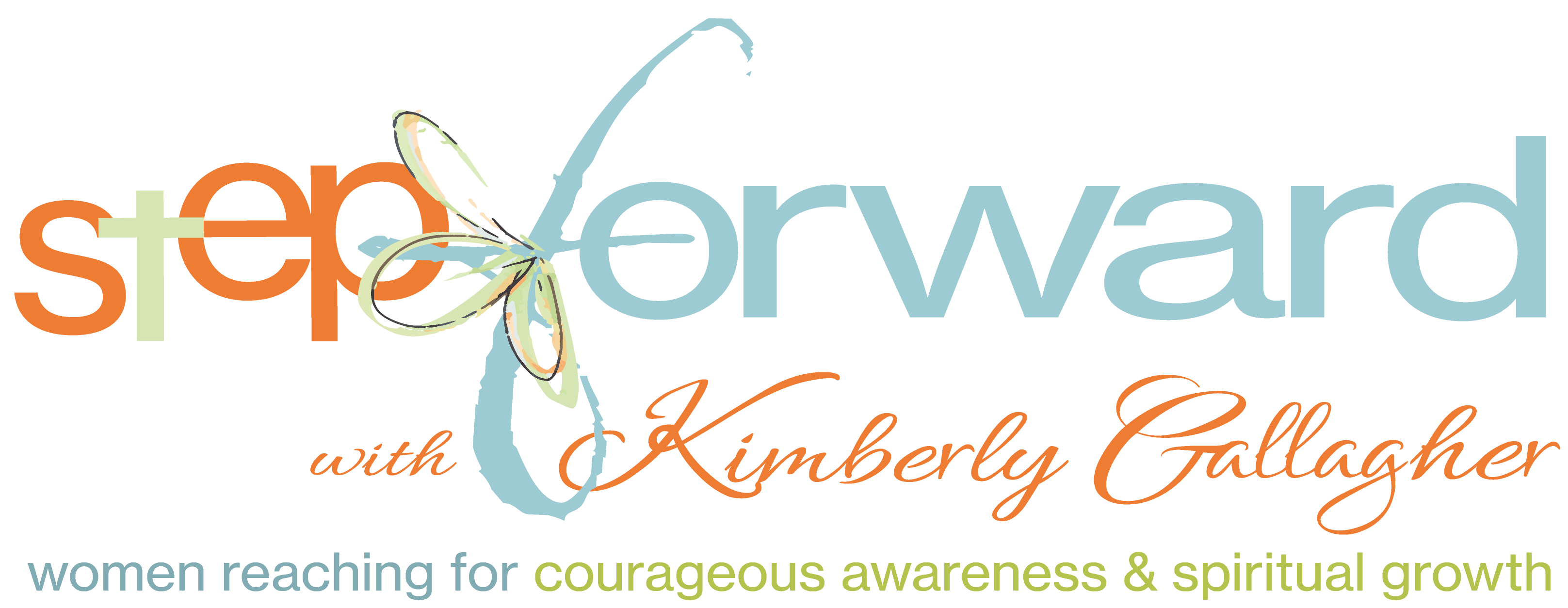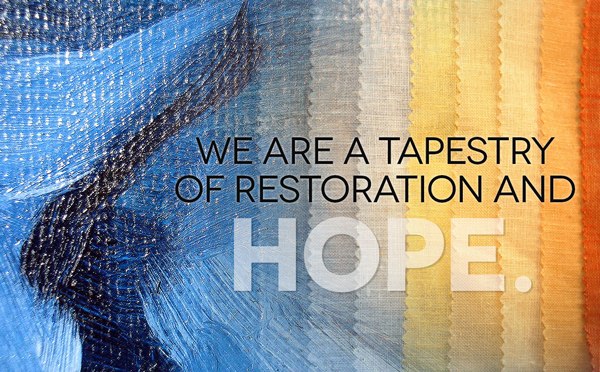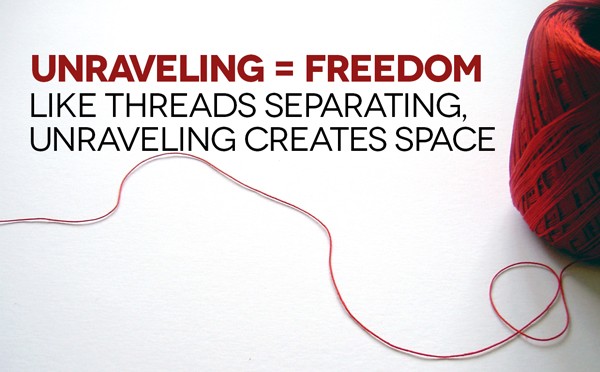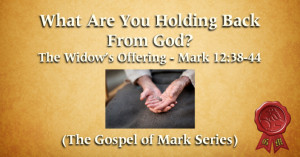[cross-posted from www.ArtOfTheChristianNinja.com]
Click here for Audio
 This World is Getting Worse (And There’s Nothing We Can Do About It)
This World is Getting Worse (And There’s Nothing We Can Do About It)
Last week we said that this world is not our home. Has anyone felt that they just want to get off this planet and be with Jesus this week? To reach our final destination:
“Behold, the dwelling place of God is with man. He will dwell with them, and they will be his people, and God himself will be with them as their God. 4 He will wipe away every tear from their eyes, and death shall be no more, neither shall there be mourning, nor crying, nor pain anymore, for the former things have passed away.” (Revelation 21:3-4)
We all have times like that, don’t we? When we are suffering, discouraged or in pain – or watching someone we love that is suffering, discouraged or in pain – it is a constant reminder to believers that we aren’t where we are supposed to be. Hebrews 13:14 echoes what we talked about last week with Augustine’s two cities: “For here we have no lasting city, but we seek the city that is to come.”
That’s one of the feelings that happens when hard times come, isn’t it? We feel that way, don’t we? Our feelings of “This isn’t right! It’s not supposed to be like this!” are actually fairly accurate. You’re right – it’s not. The original intention of this place we call “Earth” was that we would be happy, productive, free and walk in the presence of God. But because of the effects of sin, we are not happy, productive, free and connected to God. No, instead we are unhappy, work much harder than we should have to, are bound to temptation and destruction, and there is a veil between us and God.
That’s the bad news – but it’s true. And there’s nothing we can do about it. There’s no technology we can build, no pill we can take, no food we can eat, no politician we can elect, no doctor we can see, no scientist we can fund, that will be able to make this world all better. Sure, God has put some amazing people on this earth who have done some amazing things to help bring peace, healing, humour, comfort, and wonder to more and more people – but they’re all just a stop gap. For every medical breakthrough, there are a thousand more diseases. For every scientific innovation, there are a million unanswered questions. For every great politician, there is a despotic dictator. For every comedian there is are a hundred naysayers. For every Mother Theresa there is a terrorist or suicide bomber. For every family willing to pursue adoption, there are hundreds more who would rather kill the baby instead.
I’m not saying this because I’m a pessimist – I’m saying this because it’s true. Those outside of these walls, who believe in the “triumph of the human spirit” or “the amazing potential of mankind” are only fooling themselves into believing that there is a bright day in the future where we will have conquered death, disease, famine, plague, and natural disasters. It’s a pipe dream. This world, for all its joy and wonder, is a terribly messed up place – and there is nothing we can do about it.
The Question of Discouragement
And so, today’s question become extremely pertinent: “How do I keep from getting discouraged when I continually fail in certain areas of my life?” I appreciate that question, but I want to expand it a little further to simply asking the question: “How do I keep from getting discouraged?” Whether it’s personal failure that we bring upon ourselves or a natural disaster that happens to us, I believe the response is fairly similar, so that’s what I want to address today.
Turn with me first to Psalm 37:1-9 we can find a very practical list of ways to react when we become discouraged. Let’s read the whole thing together and then, over the next couple weeks, we’ll take it apart into five different parts.
As a quick intro, this Psalm is written as a sort of proverb set to music. It’s chock full of practical truth about how things are supposed to work. They are in alphabetical order (in the Hebrew language) and each build upon one another. One writer in the 16th century said, “They hang together not unlike many precious stones or pearls, which are strong on one string in one necklace.” (Amyrald):
“Fret not yourself because of evildoers; be not envious of wrongdoers! For they will soon fade like the grass and wither like the green herb. Trust in the LORD, and do good; dwell in the land and befriend faithfulness. Delight yourself in the LORD, and he will give you the desires of your heart. Commit your way to the LORD; trust in him, and he will act. He will bring forth your righteousness as the light, and your justice as the noonday. Be still before the LORD and wait patiently for him; fret not yourself over the one who prospers in his way, over the man who carries out evil devices! Refrain from anger, and forsake wrath! Fret not yourself; it tends only to evil. For the evildoers shall be cut off, but those who wait for the LORD shall inherit the land.”
So the five steps we see there are “Fret not”, “Trust in the Lord”, “Commit your way to the Lord”, “Be still before the Lord.”, and “Refrain from anger.” We’re going to talk about the first one today.
1. Fret Not Yourself (Take Control of Your Thinking)
The first thing that the Psalmist tells us to do when we come face to face with evil – which for him are evildoers, but it could just as easily be the evils of temptation, sickness, struggle, tragedy, heartache – is to “Fret not yourself because of evildoers…” This has everything to do with preparing our mindset before the tragedy comes – or steeling ourselves against it when it arrives.
For the Psalmist, the problem is “evildoers”. He says, “Fret not yourself because of evildoers; be not envious of wrongdoers! For they will soon fade like the grass and wither like the green herb.” In other words, he’s looking at wicked people doing wrong things, and yet they are still prosperous. This theme happens a lot in the psalms as the good guy bemoans the fact that he’s being good and suffering, and yet the bad guys are all having a great time. It bothers him greatly, so here we see him talking to himself and also talking to others about it. He’s taking control of his out-of-control thinking.
This is the first thing we have to do for ourselves too when evil comes upon us. This is the first step in the battle against discouragement – to take control of our thought life. This is actually found quite a lot in scripture.
- Psalm 4:23 says, “Above all else, guard your heart, for everything you do flows from it.”
- 2 Corinthians 10:5 says we are to “take every thought captive to obey Christ”.
- 1 Peter 1:13 says, “…prepare your minds for action, keep sober in spirit, fix your hope completely on the grace to be brought to you at the revelation of Jesus Christ.”
- Last we read Colossians 3:2, “Set your mind on the things above, not on the things that are on earth.”
- (Also Romans 12:2, Mark 7:20, Philippians 4:8)
This is a practical action, a step of obedience, that we are given to do in scripture, given to us to combat the temptation to become discouraged. These are active commands, something we are supposed to do. It doesn’t just happen – it’s something which we must choose to participate in.
As an exercise in how to do this, to take control of our thoughts, turn with me to Matthew 5 and let’s read one of the most famous passages in scripture, called the Beatitudes. These are a great source of encouragement, and a great place to find right-thinking about the difficult times that we face in our lives.
Reading the Beatitudes Forwards, Backwards & Inside-Out
But I want to do something a little different today – I want to read them forwards, and then backwards, and then inside out.
Starting at verse 3, forwards we read
“Blessed are the poor in spirit, for theirs is the kingdom of heaven.”
Now let’s read that backward: “The Kingdom of Heaven is for people who are poor in spirit. It is the poor in spirit that are blessed.”
Now let’s read it inside-out: “Wretched are those who believe they are spiritually self-sufficient, for theirs is the kingdom of Hell.”
That puts a different spin on it, doesn’t it? What is a sure path to discouragement? To believe we are spiritually and emotionally strong enough, in and of ourselves, to deal with what this world has to offer. How can we feel wretched? By trying to attain the Kingdom of Heaven by our own strength.
To gain the blessing of the Kingdom of Heaven, we must realize that we cannot, ever, be strong enough to deal with the weight of the world on our own. Sin is too big, the troubles of this world are too big, and our personal problems are too much for us. We are designed to need God, need Jesus, and need other believers. Once we realize that and seek out other sources of strength outside ourselves, we will begin to see blessing and understand “Blessed are the poor in spirit”.
Whenever we feel like we can handle it, that we don’t need God or our Christian family – we need to take that thought captive and realize it for what it is – a demonic temptation toward the pride of thinking we are sufficient, and a ploy to get us alone so we can be attacked more easily. Don’t fall for it.
Mourning & Denial
Forwards, verse 4 reads, “Blessed are those who mourn, for they shall be comforted.”
Backwards that reads: “To feel the comforting of God, one must feel sorrow.”
Inside-out that reads, “Wretched are those who deny the tragedy of sinfulness, for they will be troubled.”
Discouragement comes to those who are unwilling to admit that they are sinners that do evil for which they will accountable for. If you walk around believing that nothing is your fault, everything bad is someone else’s responsibility, that you never make mistakes, and that if everyone would just listen to you then life would be better – then you are setting yourself up for a world of troubles.
However, when we allow ourselves to mourn, grieve, and accept the fact that sin is real in this world, and in our own hearts – that our personal sin is a contributing factor to the suffering of this world – then we can finally come to the place where we will turn to God for comfort. As long as we are living in denial that anything can go wrong, or that anything is our fault, then we will never accept the comfort of God.
Have you ever heard someone say, “I’m so discouraged because things keep going wrong around me, and I’ve got nothing to do with it! Everyone around me is always wrong. I’m surrounded by incompetence. I deserve better!”? That’s a person who refuses to mourn for their sin and will never feel the comfort of God’s forgiveness through Jesus Christ. It’s only when we admit we are sinners, that we are guilty of sin and responsible for our actions, and that we need forgiveness – when we mourn our sin – that we will be met by the amazing grace of Jesus.
We must take this thought captive – that we are faultless – and come to God for forgiveness.
Another side to this, more obviously is that in order for us to feel the need for God’s presence, we must feel His absence. Sometimes God will put us through times of grief, that drive us to mourning, so that we will understand what life without Him is like.
Take this thought captive as well – when we think that God is punishing us through suffering, remember that He already punished Jesus and that that which we are mourning is meant to drive us to God, not away.
Meekness & Self-Centeredness
Verse 5, when we read it forwards says: “Blessed are the meek, for they shall inherit the earth.”
Reading it backwards we see: “The ones who will gain the most, are the ones who are willing to give up what they think they deserve.”
Reading it inside-out we read: “Wretched are the self-centred, for they shall be empty.”
This is kind of the opposite of the first one. The first reminder was that we shouldn’t be alone but this is the flip-side. Sometimes when discouragement, troubles and disaster comes, it’s really easy to get self-centred. Everyone wants to know what’s going on with you, you are the centre of attention, they’re reading your posts on Facebook, you’re getting phone calls, visits, emails, nice cards, flowers, casseroles. It’s easy to start to get used to it and think you deserve all that you are getting – that the universe revolves around you. Ironically, the attention we sometimes get when we are in the midst of suffering, can puff up our pride.
Have you ever met a “drama queen”? This is a person who is in the habit of creating and responding to situations in an overtly overdramatic, melodramatic, exaggerated way. Something goes a little wrong – they forget to pay their credit card on time, their favourite tv show is cancelled, they have a fender bender, someone gives them a negative comment – and the curtain rises and the performance starts!
Their lip quivers, the tears roll, the vague Facebook posts start flowing, “People are so rude! I’ve never been treated so rudely as I was today! Who do people think they are?”
They call you up and start with “You’ll never believe what happened to me today!” And then start to tell you of the many, horrible things that occurred that day. The only issue is that they ALWAYS have problems and all of them are huge! Everything is about them, all the time. The world revolves around them and their problems. They don’t know what to do with themselves if they’re not the center of attention and getting pity from as many people as possible!
The word “meek” means someone who is “gentle and humble”. So long as we have the world revolving around us – there is no way that we can inherit it from the One whom it truly does revolve around. (Tweet this quote) Put it this way – when we are using our sufferings to draw attention to ourselves and puff up our pride, we are wasting our sufferings, because we they are meant to draw us to our knees, build our humility, and cause us to be more dependant on God.
The other side of this is that we end up forgetting that other people have problems too. Sometimes our problems make us blind to others. A meek, gentle, humble person who is going through a hard time – is still concerned for others. It is the meek who God promises will inherit the earth, because even in their suffering, they are still thinking about how they can love others.
So, we must take captive the thought that our suffering is a way to gain attention for ourselves and forget about others. When we dwell, only on our own sufferings and refuse to help, serve, and pray for others, or draw closer to God, we are on the path of spiritual destruction. We are wasting the suffering, and can’t help but end up feeling discouraged.
Wretched are the Uncommitted
Let’s do one more Beatitude. Skip down to verse 11.
Forwards it reads: “Blessed are you when others revile you and persecute you and utter all kinds of evil against you falsely on my account. Rejoice and be glad, for your reward is great in heaven, for so they persecuted the prophets who were before you.”
Backwards that reads: “They persecuted all the prophets in the Bible, all the ones who believed in me before you. Because of your relationship with Me, they are going to falsely accuse you, speak evil of you, persecute you, and hate you. The only way you will be able to rejoice and be glad in these times is if you remember that your blessing and reward is in heaven, not here on earth.”
Inside-out that reads: “Wretched are the uncommitted, who drop their relationship with Jesus when it becomes inconvenient, and who think the Christian life is an easy ride, for their destination is Hell.”
Again, as I said, this is about right thinking. A friend of mine reminded me this week that all of the apocalyptic, end times, Revelation parts of the Bible are there to remind us about our ultimate goal—to experience the presence of God in Heaven.
Scripture reminds us that people are going to hate us, Satan will attack us, our bodies will fail us, the nations will be at war, the very ground beneath us will shake and break up – and it is all a reminder to us that we are not home.
Last week I reminded you that we are “aliens and sojourners” in this world. Even this environment around us is toxic. Our home is in heaven, but we’re not there yet. This life is merely a fraction of all eternity, and even though it feels all-encompassing now, the suffering we will endure only a moment in time.
If our Treasure is truly in Heaven (Matthew 6:19-21), where moths and vermin cannot destroy it, and where thieves cannot break in and steal it, then – and only then – can we rejoice in our sufferings. Why?
Because suffering causes us to press closer to God, depend more on Him, long for His presence, weep with those who weep and mourn with those who mourn, share in the suffering of others, see the poverty of our spirit and desire the Kingdom of Heaven, hunger for righteousness instead of worldliness, show mercy because we have received it, and because it is a way for God to clear our minds of all the fluff and nonsense of this world.
As Romans 5:3-5 says:
“Not only that, but we rejoice in our sufferings, knowing that suffering produces endurance, and endurance produces character, and character produces hope, and hope does not put us to shame, because God’s love has been poured into our hearts through the Holy Spirit who has been given to us.”
But even more than all that, when we think rightly of our sufferings, we realize that we are being made more like Jesus, who suffered more than all of us, so we might be free from suffering forever.
Don’t waste your suffering. Don’t allow it to discourage your faith – instead, allow it to push you into the arms of God, so you might know the hope that comes from God’s love poured into your heart through the Holy Spirit.
Conclusion
Unfortunately we’re going to have to pick up the other steps of Psalm 37 next week, because we’re not going to have time today. I think it’s really important that we cover this first part of “taking every thought captive” or “fretting not” because it is so critically important that, when suffering and discouragement comes, that we begin with right thinking about it. That’s the most critical first step.
So we’ll end there for now, but until we come back next week, I encourage you to read the rest of the Beatitudes forwards, backwards and inside-out (to practice right thinking) and meditate on Psalm 37:1-9 (for practical ways to combat discouragement).











